Are you struggling to navigate the complex world of Chinese manufacturing? Wondering if you should try sourcing directly or hire a professional agent? The difference could mean thousands in savings—or costly mistakes.
A China wholesale agent is worth it when you need supplier verification, quality control, and negotiation expertise. They typically add 3-10% to your costs but reduce risks of defective products, scams, and logistics problems that can cost far more than their fees.
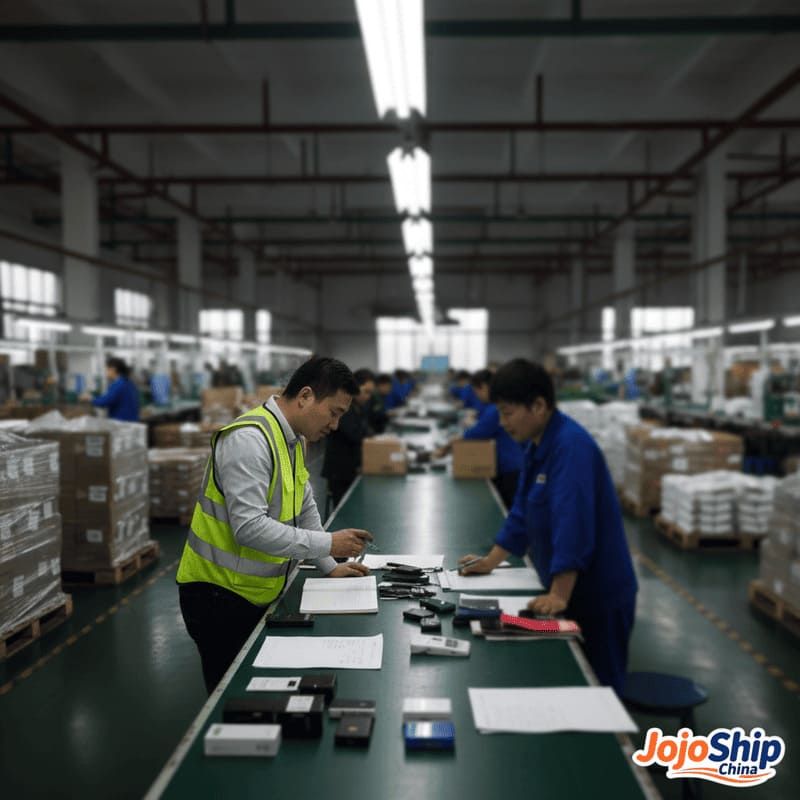
When I first started helping businesses source from China, I saw the same scenario repeatedly: companies trying to save money by going direct, only to face quality issues, communication problems, and shipping nightmares. Let me break down when an agent makes sense and when you might be better off on your own.
How Much Do Chinese Sourcing Agents Charge?
Are you hesitant to hire a sourcing agent because of unclear costs? Wondering if their fees will eat away your profits? Understanding the typical fee structures can help you make a more informed decision.
Chinese sourcing agents typically charge using one of three models: a percentage commission (5-10% of order value), a flat monthly retainer ($500-3,000 depending on workload), or a hybrid model combining a smaller percentage with fixed fees per project.
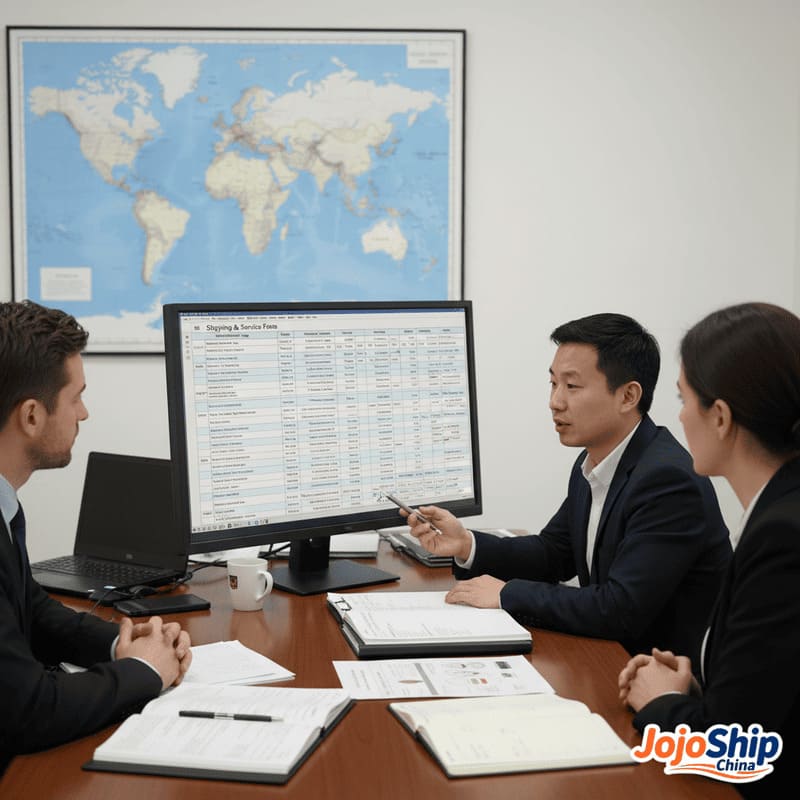
I remember when I was helping a client who had been paying 15% commission to their previous agent. They thought this was standard until we showed them the market rates. We were able to provide better service at 8%, immediately improving their margins.
Typical Fee Structures of Chinese Sourcing Agents
The cost of hiring a sourcing agent in China varies based on numerous factors. Understanding these fee structures helps you budget properly and ensure you're getting fair value:
| Fee Structure | Alcance típico | Lo mejor para | Pros | Cons |
|---|---|---|---|---|
| Commission-Based | 5-10% of order value | Regular orders with consistent volumes | Aligned incentives for lower prices | Higher total cost for large orders |
| Monthly Retainer | $500-3,000/month | Continuous sourcing needs across multiple products | Predictable costs, dedicated service | Paying even during slow periods |
| Project-Based | $300-1,500 per project | One-time sourcing needs | Clear deliverables and timeline | May lack ongoing support |
| Hybrid Model | 3-5% + fixed fees | Businesses with variable volume | Balance of incentives | More complex to calculate |
| Success Fee | Free sourcing + higher commission (10-15%) | Budget-conscious buyers | No upfront costs | Potentially higher long-term costs |
These costs must be evaluated against the potential savings and risk reduction. For instance, when I helped a home goods importer switch from direct sourcing to using our services, we negotiated a 12% price reduction from their suppliers despite our 5% commission, resulting in a net 7% savings while eliminating quality headaches.
The right fee structure depends on your business model. For high-volume, low-margin products, even a small percentage commission can significantly impact profitability. In these cases, a flat fee structure might be preferable. Conversely, for high-value items where quality assurance is critical, a percentage-based fee that incentivizes the agent to negotiate better pricing often makes more sense.
Some agents also offer tiered commission rates that decrease as order volume increases. For example, they might charge 8% for orders under $10,000, 6% for $10,000-50,000, and 5% for anything above. This structure rewards loyalty and growth, benefiting both parties as your business scales.
What Are the Risks of Wholesale from China?
Have you ever received products that looked nothing like the samples? Or dealt with a supplier who suddenly doubled prices or missed deadlines? These common scenarios highlight why understanding risks is essential.
Wholesale from China involves risks including product quality inconsistency, intellectual property theft, regulatory non-compliance, communication barriers, supplier reliability issues, and logistics complications. Without proper management, these risks can lead to financial losses and business disruption.
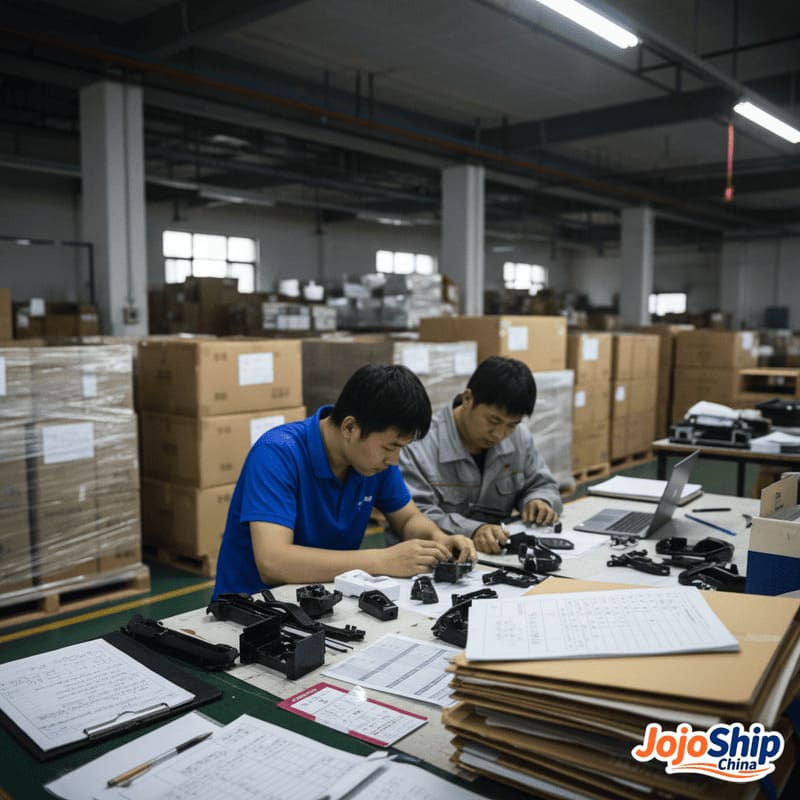
I've seen businesses face devastating consequences from poorly managed China sourcing. One client received a shipment where 80% of the products had defects, but they'd already paid in full. Without an agent on the ground, they had little recourse.
Major Risk Categories in Chinese Wholesale
Understanding these risks is the first step toward mitigating them effectively:
| Risk Category | Specific Challenges | Mitigation Strategies |
|---|---|---|
| Product Quality | Inconsistent manufacturing standards, bait-and-switch with samples | Pre-production samples, during-production inspections, detailed specifications |
| Intellectual Property | Design copying, unauthorized production runs, trademark infringement | NDAs, limited information sharing, registered trademarks in China |
| Comunicación | Language barriers, time zone differences, cultural misunderstandings | Clear documentation, simplified English, visual references |
| Supplier Reliability | Factory substitution, undisclosed subcontracting, financial instability | Factory audits, business license verification, gradual order scaling |
| Payment Security | Advance payment fraud, quality disputes after payment | Escrow services, staged payments, inspection before final payment |
| Regulatory Compliance | Missing certifications, restricted materials, improper labeling | Detailed compliance requirements, lab testing, third-party verification |
| Shipping & Logistics | Delays, damage, incorrect documentation, customs holds | Insurance, clear shipping terms, proper packaging requirements |
The reality of these risks became clear to me when helping a client who had previously ordered directly from Alibaba. They had paid a 30% deposit to a supplier who seemed legitimate but disappeared after receiving payment. When we investigated, we discovered the "factory" was actually just a small trading company with no manufacturing capabilities.
Another common scenario I've encountered involves quality fade – where initial orders are excellent, but quality gradually deteriorates as the supplier cuts corners to increase margins. One electronics importer faced this exact situation; without regular quality inspections, they didn't notice the internal components had been downgraded until customers began reporting failures.
Customs compliance presents another significant risk area. I worked with a company that had been importing toys without realizing they needed specific safety certifications. They faced penalties and had an entire shipment detained, causing them to miss their peak selling season. A knowledgeable agent would have identified this requirement from the start.
Should I Always Use an Agent When Shipping Goods from China?
Are you wondering if hiring an agent is overkill for your situation? Not sure if the added cost is justified for your specific business needs? The answer depends on several key factors.
You should use an agent when shipping from China if you're new to importing, dealing with complex/high-value products, lack Chinese language skills, need quality assurance, or can't visit suppliers personally. For experienced importers with established supplier relationships and simple products, direct sourcing may work.
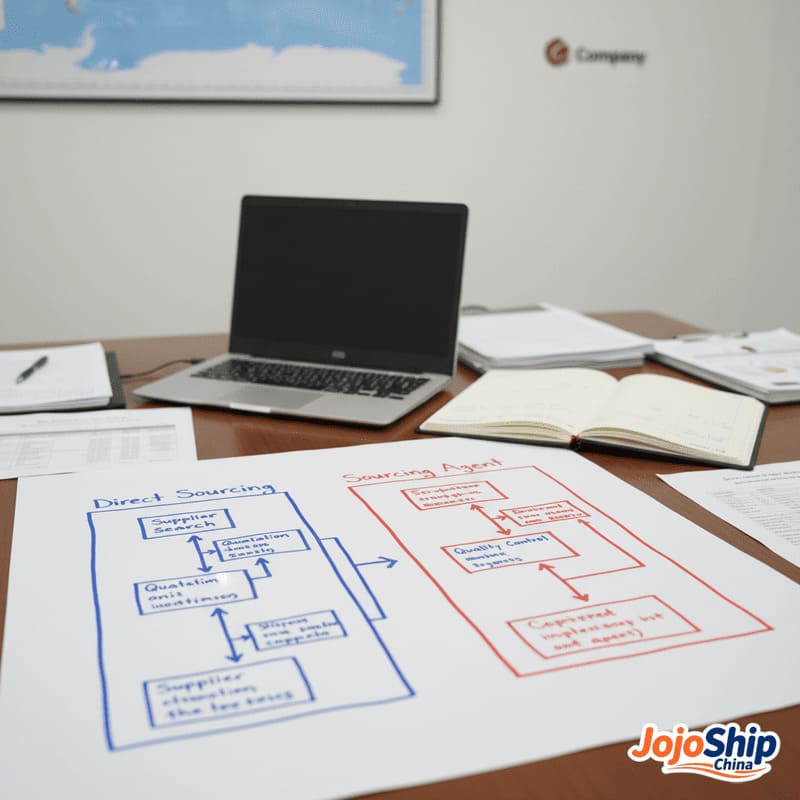
I've guided many businesses through this decision. Some successfully manage their own sourcing after building relationships, while others learned hard lessons before turning to professional help.
When to Use an Agent vs. Direct Sourcing
The decision to use an agent should be based on your specific business circumstances:
| Business Scenario | Agent Recommended? | Key Considerations |
|---|---|---|
| New to importing | Yes | Agents reduce the steep learning curve and costly mistakes |
| Complex products | Yes | Technical specifications require experienced oversight |
| High-value orders | Yes | Greater financial risk justifies professional management |
| No Chinese language skills1 | Yes | Communication errors can lead to serious problems |
| Cannot visit China | Yes | On-the-ground representation is crucial for verification |
| Small test orders (<$1,000) | Maybe | Agent fees might be proportionally high for tiny orders |
| Simple, standardized products | Maybe | Lower complexity means fewer points of failure |
| Established supplier relationships | Maybe | Direct communication may be sufficient if trust exists |
| Frequent repeat orders | Maybe | Processes become more routine with established suppliers |
| Very tight margins | Maybe | Agent fees impact profitability (though may prevent costly errors) |
In my experience, the decision often comes down to risk tolerance versus cost sensitivity. One client importing automotive parts initially balked at our 7% commission. After trying to manage their first container themselves, they encountered quality issues that cost them over $20,000 in returns and customer complaints. The following shipment with our oversight went perfectly – the 7% fee was negligible compared to the problems we prevented.
For another perspective, I worked with an experienced importer of simple textile products who had built strong supplier relationships over five years. They managed most orders directly but brought us in for new product developments or when testing new factories. This hybrid approach worked well for their business model.
The question isn't always whether to use an agent but rather what specific services you need. Some businesses benefit from à la carte services like factory audits2 or quality inspections without full sourcing representation. Others need comprehensive support, from supplier identification through shipping and customs clearance.
Technology has made direct sourcing3 more feasible, with tools like Alibaba, Global Sources, and video conferencing facilitating international connections. However, these tools cannot replicate the value of local presence, cultural understanding, and the ability to physically inspect factories and products.
What is the Best Chinese Wholesale Supplier?
Are you overwhelmed by the endless options when searching for Chinese suppliers? Worried about finding reliable partners who can deliver quality products consistently? This common challenge has frustrated countless importers.
The best Chinese wholesale suppliers vary by industry, but top-rated general platforms include Alibaba for variety, Global Sources for verified suppliers, and Made-in-China for industrial products. For optimal results, work with suppliers who have export experience, transparent operations, and verifiable manufacturing capabilities.
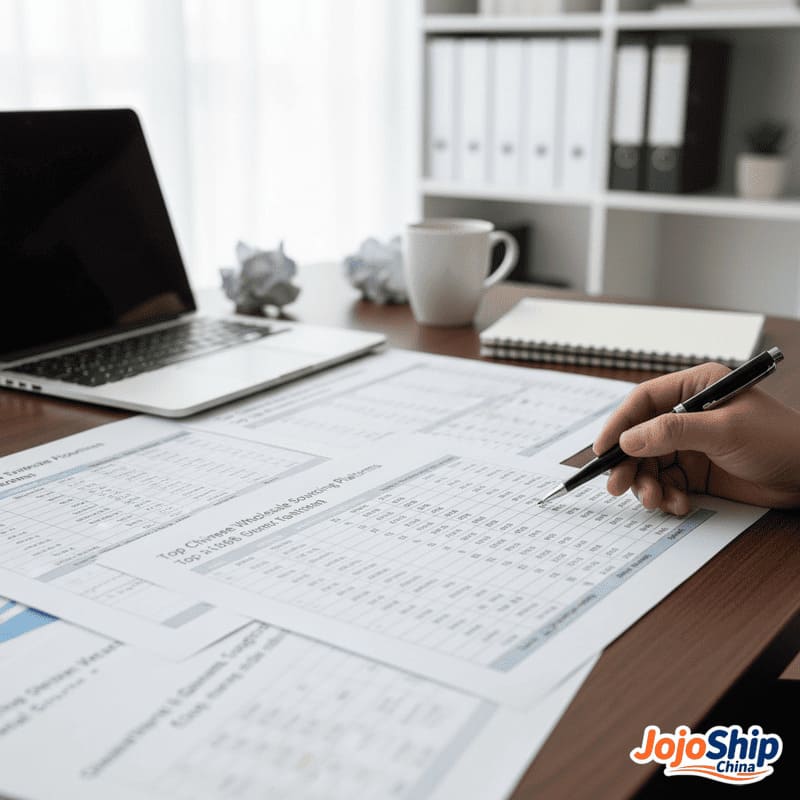
In my years helping businesses source from China, I've learned that the "best" supplier isn't universal – it depends entirely on your specific needs. Let me share what I've discovered about finding the right match.
Evaluating Top Chinese Wholesale Suppliers
Finding the right supplier requires understanding the strengths and limitations of different options:
| Supplier Type | Lo mejor para | Verification Level | Typical MOQ | Pricing |
|---|---|---|---|---|
| Alibaba4 Gold Suppliers | Wide product selection, variety of industries | Basic verification | Medio | Competitive but variable |
| Global Sources5 | Higher-quality finished consumer goods | Stronger verification | Medium-high | Premium but consistent |
| Made-in-China6 | Industrial equipment, components | Good verification | Medium-high | Industry standard |
| Canton Fair Exhibitors7 | Established exporters with showroom samples | In-person verification | Alta | Negotiable, often competitive |
| Factory Direct8 | Custom manufacturing, control over production | Requires due diligence | Alta | Best potential pricing |
| Trading Companies | Small orders, variety of products | Variable | Low-medium | Higher than factory direct |
While these platforms can help you identify potential suppliers, finding truly excellent partners requires deeper evaluation. When I help clients select suppliers, we look beyond surface-level verification to assess factors like production capacity, quality control processes, and export experience.
One telling experience was when I visited three potential suppliers for a client's home appliance product. All three had impressive online profiles, but on-site visits revealed dramatic differences. The first had outdated equipment and poor organization. The second had modern facilities but primarily manufactured for other product categories. The third not only had appropriate equipment but also demonstrated strong quality processes and previous experience with similar products for export markets.
This kind of first-hand assessment is invaluable. Without it, many businesses end up with suppliers that look good on paper but struggle to deliver in practice. I've found that suppliers with genuine manufacturing capabilities (versus hidden subcontracting), transparent operations, and experience exporting to your target market consistently outperform others.
Industry specialization is another critical factor. A supplier who excels at electronics manufacturing might produce mediocre textiles. When we helped a client transition from a general supplier to one specializing in their specific product category, their quality issues decreased by over 70%, and manufacturing lead times improved by nearly 30%.
Remember that the term "best" can mean different things depending on your priorities. If low MOQ is your primary concern, a trading company might be best. For quality control and customization, a specialized factory would be superior. For complex projects requiring multiple components, a supplier with strong project management capabilities would be ideal.
Conclusión
A China wholesale agent is worth the investment for most businesses, as they provide risk reduction, quality control, and negotiation leverage that typically saves more than their fees cost, while giving you back valuable time to focus on growing your business instead of managing overseas suppliers.
-
Discover how language skills can prevent miscommunication and enhance your importing experience. ↩
-
Learn the best practices for factory audits to ensure quality and compliance in your imports. ↩
-
Gain insights into direct sourcing to make informed decisions for your business needs. ↩
-
Learn about Alibaba's unique offerings and how it stacks up against competitors for sourcing products effectively. ↩
-
Find out how Global Sources connects importers with verified suppliers, ensuring quality and trust in your sourcing process. ↩
-
Discover the range of industrial products available on Made-in-China and their reliability as a sourcing platform. ↩
-
Explore the advantages of sourcing from Canton Fair Exhibitors, including in-person verification and competitive pricing. ↩
-
Learn about the benefits of Factory Direct suppliers, including customization and potential cost savings for your business. ↩




